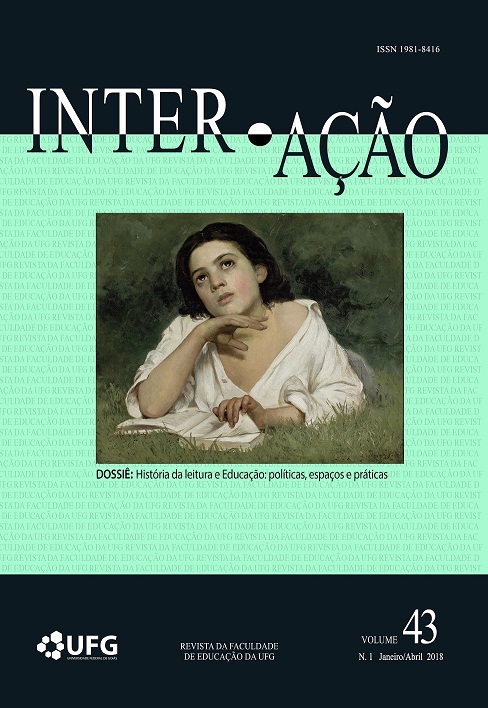Estado e educação do campo: a influência dos organismos internacionais na elaboração de políticas públicas educacionais para o campo brasileiro
DOI:
https://doi.org/10.5216/ia.v43i1.46081Abstract
O marco do surgimento da Educação do Campo ocorre em 1997, em um encontro sediado em Luziânia – GO organizado primordialmente pelo Conselho Nacional de Bispos do Brasil (CNBB), Movimento dos Trabalhadores e Trabalhadoras Sem Terra (MST), Universidade de Brasília e as organizações internacionais: UNESCO e UNICEF. Em nosso estudo temos como objetivo analisar as contradições da institucionalização da Educação do Campo. Para isso, buscamos refletir acerca do Programa Nacional de Educação na Reforma Agrária. Objetivamos também mostrar a influência do Banco Mundial nos projetos educacional e investigar seu projeto para o campo e a educação no campo brasileiro. Para isso, utilizamos pesquisa bibliográfica e documental, analisando relatórios do Banco Mundial, bem como dados fornecidos pelo ministério da educação.
Downloads
Published
Versions
- 2026-02-02 (2)
- 2018-09-21 (1)
How to Cite
Issue
Section
License
Copyright (c) 2018 Inter Ação

This work is licensed under a Creative Commons Attribution-NonCommercial 4.0 International License.
Inter-Ação uses the Creative Commons Attribution 4.0 License for Open Access Journals (Open Archives Initiative - OAI) as the basis for the transfer of rights. Open access means making documents available on the Internet free of charge, so that users can read, download, copy, distribute, print, search, or link to the full text of documents, process them for indexing, use them as input data for software programs, or use them for any other lawful purpose, without financial, legal, or technical barriers.
Authors publishing in this journal agree to the following conditions:
1) Authors retain copyright and grant the journal the right of first publication, with the work simultaneously licensed under the Creative Commons Attribution License, which permits redistribution of the work with attribution and first publication in this journal.
2) Authors are permitted to enter into additional, separate agreements for non-exclusive distribution of the version of the work published in this journal (e.g., for publication in an institutional repository or as a book chapter), with attribution and first publication in this journal.
3) Authors are permitted and encouraged to publish and distribute their work online (e.g. in institutional repositories or on their home page) at any time before or during the editorial process, as this may generate productive changes as well as increase the impact and citation of the published work.















